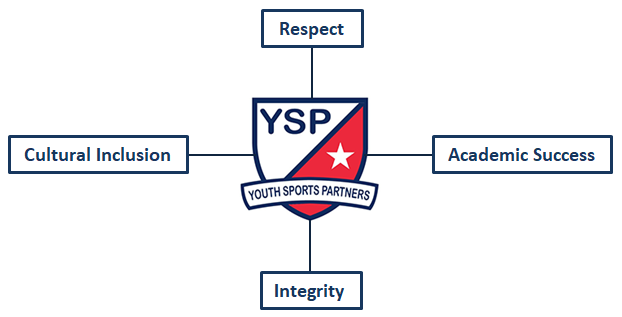Mission
YSP leadership is dedicated to helping each individual student reach their athletic and academic goals. As former athletes and students, the founding partners understand firsthand the obstacles high school student-athletes face prior to and after enrolling in college. Our organizational priority is to positively impact the student-athlete’s pathway to success.
Our mission will support our vision of bridging a cultural gap in our society through sports by educating a variety of student-athletes from different cultural, ethnic, and socioeconomic backgrounds through workshops and events. Additionally, any other entity or individual who shares and supports this vision can partner with YSP to achieve this goal.
Core Values
Our values at Youth Sports Partners consist of:

Challenges
Why we need your help immediately:
- The NCAA famously says “95% of college athletes go pro in something other than sports.”
- An NCAA study on the experiences of college athletes revealed that 60% of student-athletes reported viewing themselves "more as athletes than students.”
- A 2014 qualitative study from North Carolina State University found that student-athletes face unique challenges of uncertainty in personal, social, and future career areas.
- According to a study with NCAA student-athletes, researchers concluded that “the more closely a player identified as being part of their team, the more likely they were to conform to their teammates' behavior. This was true for both risky and positive behaviors.”